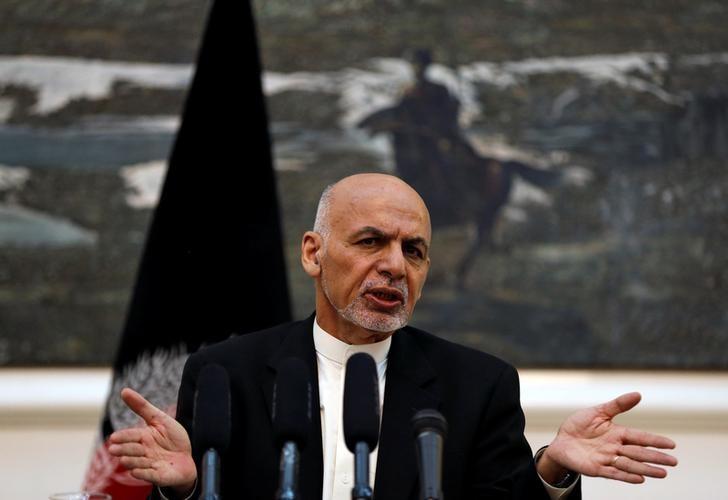Afghanistan President Ashraf Ghani announced on Tuesday that the death toll from last week’s truck bombing in the capital Kabul has reached to over 150.
He said during a peace conference in the city that more than 300 people were wounded in the attack.
The blast occurred when a sewage truck packed with what Ghani called “military-grade” explosives detonated at the entrance to a fortified area of that city that includes foreign embassies and government buildings.
The new death toll makes it the deadliest attack in the Afghan capital since the ouster of the Taliban in 2001.
“We were not the only targets, the entire diplomatic community was the target of this attack,” Ghani told foreign diplomats gathered for the conference.
Previous official estimates had put the death toll at about 90, with more than 460 wounded.
All of those killed were Afghans, and Ghani paid specific homage to 13 policemen who stopped the truck as it tried to enter the fortified district and were killed in the blast.
No group has claimed responsibility for the attack, which sparked violent anti-government protests.
Several protesters were killed in clashes with police on Friday, and at least a dozen people were killed when suicide bombers attacked the funeral for one of the dead protesters on Saturday.
On Monday, Ghani’s main government partner said his national security adviser and other top security officials should be removed in wake of last week’s violence.
“There is a big problem with the heads of the security institutions,” said Salahuddin Rabbani, foreign minister and head of Jamiat-e Islami Afghanistan, the party behind Chief Executive Abdullah Abdullah. “They should be removed.”
Ghani has appealed for unity and promised an investigation into the actions of police who fired on protesters.
But the violence of the past days and the outburst of public anger over security failures has ratcheted up tensions in the government, which has been under increasing strain over the past few months as security has deteriorated.
The tensions, which have worsened in the absence of a clear direction from Washington, have complicated the situation facing US President Donald Trump’s administration as it works out its policy approach to Afghanistan.
Built on a US-brokered agreement between the former rivals Ghani and Abdullah after the disputed election of 2014, the partners in Afghanistan’s National Unity Government have been at odds since the start.
Abdullah’s mainly Tajik Jamiat party has felt betrayed by the way what they understood as a power sharing accord has produced a government dominated by Ghani and other powerful Pashtuns such as National Security Adviser Atmar.
